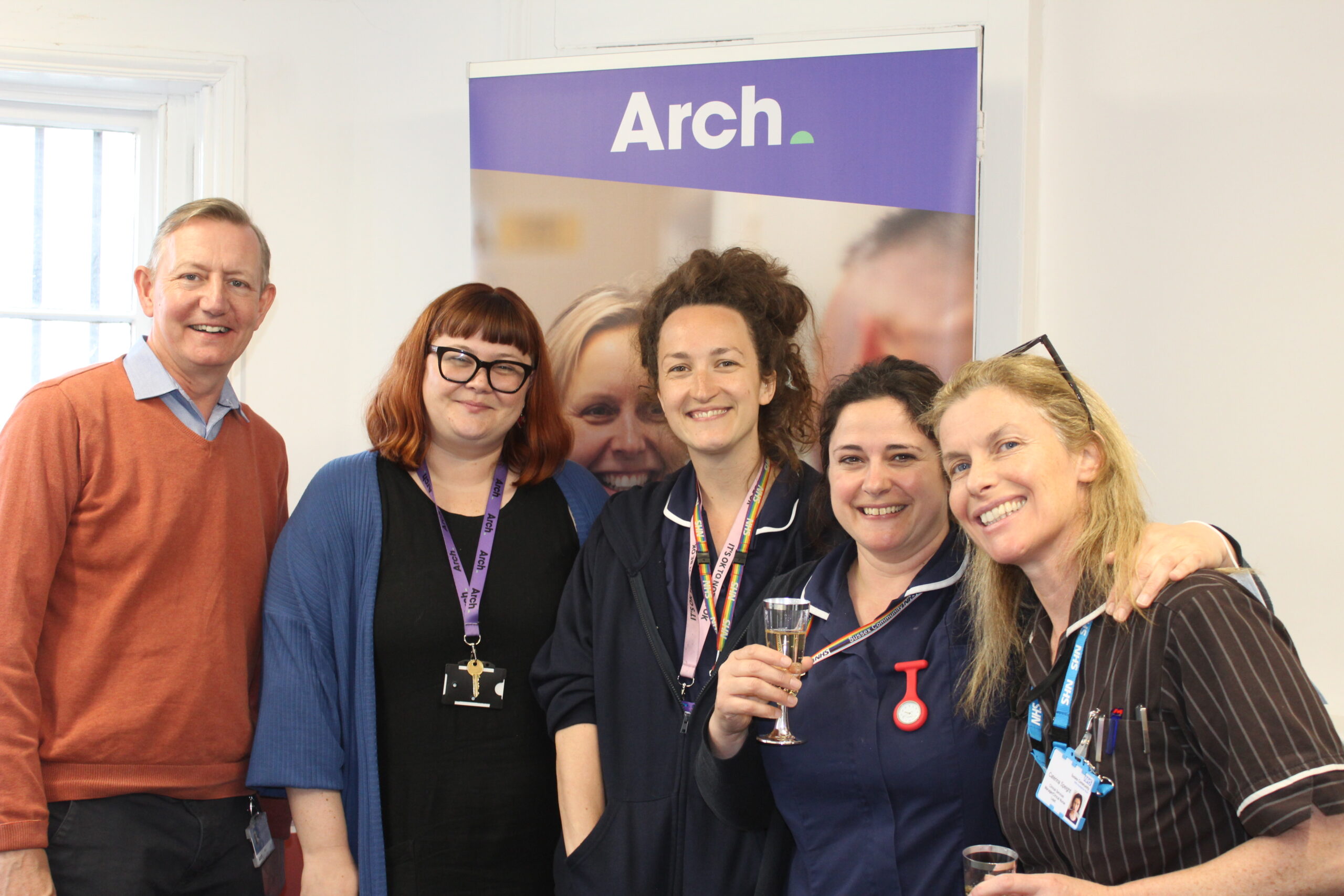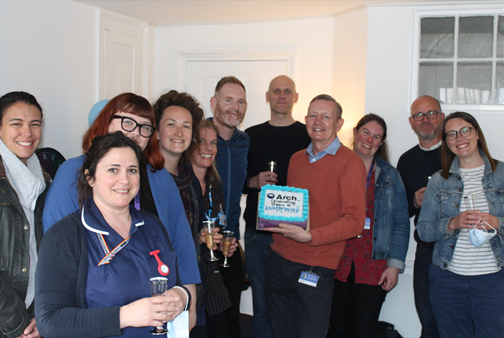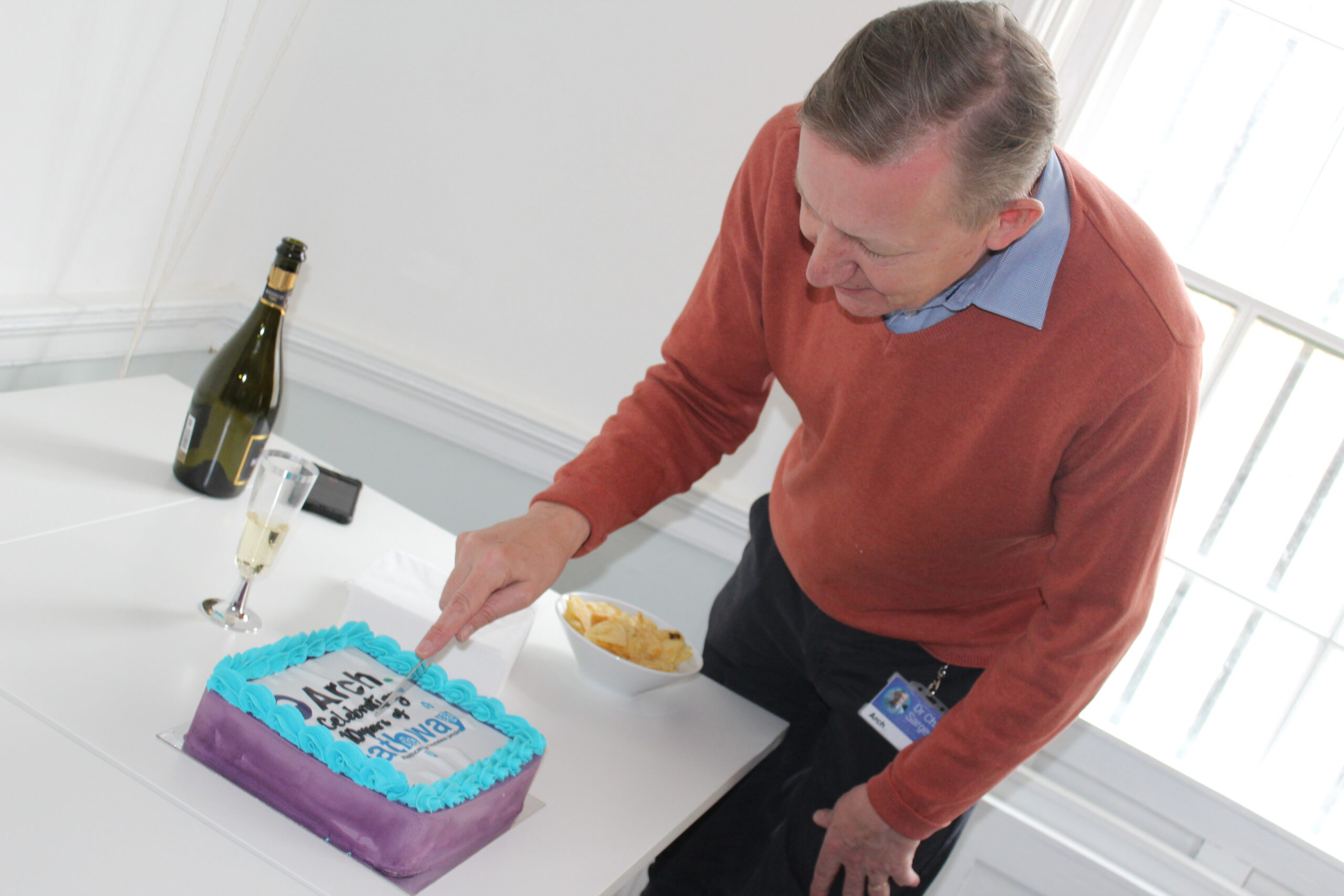10 years of Pathway, our hospital inreach service for people facing homelessness
In May 2022, our Pathway team celebrated 10 years in Brighton, making it the longest-running Pathway programme outside of London. Commissioned by Arch Healthcare, and in partnership with Sussex Community Foundation Trust, Pathway is a simple model that uses the opportunity of hospital admittance, to identify people experiencing homelessness, and by providing extra, tailored care, coupled with housing support, help these patients to move to a more positive life path.

In May 2012, this small team of dedicated specialists set up shop in the Royal Sussex County Hospital, now part of Sussex University Hospitals, and started to identify and support patients in hospital at that time who didn’t have a home to go to upon discharge.
The team works with the clinical teams to ensure appropriate treatment, to ensure full understanding of the patients’ circumstances, and awareness of other health issues. They also try to meet possible needs such as for toiletries and clothes, tv access and books, to ensure a dignified hospital stay, and understand the importance of building up trust with patients who may have lost faith in the system, to ensure that all treatments are fully effective. They then work with the patients and Housing Needs colleagues to ensure that they come out to a stable environment upon discharge, including support with housing and benefits, so that patients would be able to get out of hospital and recover properly and safely.
The emphasis has always been on partnerships and connections
- Registration with Arch, where a GP is needed, to ensure high levels of primary healthcare in the community, tailored to people who are insecurely housed.
- Entry, where needed, onto the Multi-agency Homeless Health Meeting (MAHHM) list, to enable the journeys of patients to be traced, looking at the whole person and their story so far, and provide considered, effective, human treatment.
- Referral to charity Justlife, providing a health engagement support worker where needed

What difference has Pathway made?
Financial
Research by the British Medical Association shows that over the last decade, hospital attendances and admissions by patients with no fixed abode have risen significantly. Despite rising demand and the challenge of complex cases, Pathway is making a difference in Brighton. For a small yearly investment to cover salaries and supplies, available data (for three years 2017, 2018 & 2019) showed that:
- A&E attendance rates have dropped every year, at rates between 5% and 9%
- Unplanned hospital admissions have fallen, at rates between 15% and 35%
- Readmissions have reduced, at rates between 35% and 48% per year
A study looking at 410 patients, which included the Royal London, found that the proportion of people sleeping on the streets after hospital discharge was 3.8 per cent in a cohort of patients exposed to a Pathway team, compared with 14.6 per cent receiving standard care.
If A&E attendance costs around £160 per patient, and the cheapest hospital stay costs around £1600 (according to recent figures), there are significant savings to be made.
People admitted whilst homeless might also be more likely to require a long stay in hospital, due to the complexity and severity of their health challenges. Preventative work through Pathway, and also the team’s work to support proper recovery outside of hospital, reduces the frequency and length of hospital stays, thus making even further savings.
Human
And of course, there is the impact on people’s lives – this cannot always be measured, but can be felt by all of those with a stake in a patient’s care and health outcomes. There are the patients who have been empowered to take control of their lives, avoiding the streets and working back to full health, supported and stable. There are the people working in the hospital, who start to change their perceptions of people admitted whilst homeless, empowered to support them effectively, and then feel the satisfaction of seeing them discharged not to the streets, in order to return in quick succession, but instead to see them leave in recovery and hopeful. There are the medical students (SUH is a training hospital), who get a rare insight, during their training, into caring for one of the most marginalised groups of people in the UK, facing multiple exclusions and barriers to good health. And finally there is the Pathway team in that hospital, advocating for people whose voice and needs might not always get heard, changing perceptions, and fighting to address their needs and ensure there is humanity and kindness in their care.
Dr Chris Sargeant, Clinical Lead at Brighton’s Pathway team, says:
“There have been many memorable patients in 10 years. The first months were spent letting people know that we were here and looking out for our patients.
One of the first was a man who had been admitted after being stabbed. He had had a place in a supported accommodation but was told he was not welcome to come back. He was very distressed by this, as he had been the victim of a violent attack, so it did not seem right that he should lose his accommodation.
The supported accommodation were somewhat surprised when asked if he had been evicted and proper procedures followed. It turned out he had not and the manager agreed that the decision had not been taken properly, so he was allowed to return.
Another patient had been a very regular attender at the hospital, sleeping rough and presenting sometimes several times a week. After one longer admission he was given emergency accommodation after an application had been made by our team and Adult Social Care colleagues put in for regular carers. His rate of attending dropped. Further assessments took place at his accommodation which had not been able to happen previously as he often could not be found. Following these a specialist nursing home was found and he agreed to go there, settled well and now rarely comes to hospital.”
